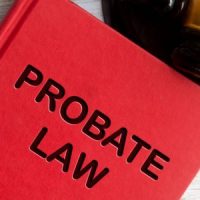Who Gets Paid First When a Florida Probate Estate Is Insolvent?

Before any heirs or beneficiaries of a Florida probate estate can receive an inheritance, certain debts and expenses of the deceased must be paid. Indeed, it is not uncommon for an estate to be “insolvent,” meaning there are insufficient assets to pay all of the accumulated debts and expenses. So if there is not enough money to go around, who gets paid first?
Florida’s Order of Payment of Expenses and Obligations
Florida law does specify an “order of payment of expenses and obligations.” Basically, the law divides the estate’s creditors into eight different groups or “classes.” All creditors in the highest class must be paid before proceeding to pay the creditors in the next-highest class.
That highest class–Class 1–includes the expenses of administering the estate itself, including any compensation owed the personal representative or the estate’s attorney. The next-highest class, Class 2, covers the reasonable funeral and burial expenses of the estate, up to $6,000.
The remaining five classes are as follows:
- Class 3 — The debts and taxes of the decedent.
- Class 4 — The medical and hospital expenses incurred by the decedent’s final illness.
- Class 5 — A “family allowance” of up to $18,000, paid to the decedent’s surviving spouse or dependents.
- Class 6 — Child support owed by the decedent at the time of death.
- Class 7 — Debts acquired by the decedent’s business after death.
- Class 8 — All other claims, including civil judgments against the decedent.
If all of the creditors in a given class cannot be paid in full, the estate must use whatever assets are left to pay each creditor in proportion to their respective claims.
Can Creditors Go After a Trust?
Many Florida residents create a revocable living trust as part of their estate plan. A revocable trust can effectively hold legal title to all of a person’s assets, leaving little or nothing in their probate estate. Indeed, the main reason most people create a trust is so their assets can avoid going through probate after they die.
But simply putting your assets in a revocable trust will not necessarily defeat creditor claims against the probate estate. Florida law provides that “[a]ny portion of a trust” subject to revocation by the decedent at the time of their death is liable for the expenses and obligations of the probate estate if the estate is insolvent. There are exceptions, however, such as trusts funded using certain federally protected retirement plans. And generally speaking, assets from an irrevocable trust–i.e., one the decedent had no right to revoke or amend–are not subject to probate creditor claims.
If you are involved in a legal dispute involving the administration of a trust or estate, including the payment of creditors, it is best to speak with a qualified Pompano Beach estate and trust litigation lawyer. Call the office of Mark R. Manceri, P.A., at 954-491-7099 today to schedule an initial consultation.
Source:
leg.state.fl.us/Statutes/index.cfm?App_mode=Display_Statute&URL=0700-0799/0733/Sections/0733.707.html

 Mark R. Manceri, P.A. is a boutique law firm that specializes in Estate, Trust and Guardianship litigation. These matters include Will and Trust contests involving lack of capacity, undue influence, forgery, improper execution and tortious interference...
Mark R. Manceri, P.A. is a boutique law firm that specializes in Estate, Trust and Guardianship litigation. These matters include Will and Trust contests involving lack of capacity, undue influence, forgery, improper execution and tortious interference...